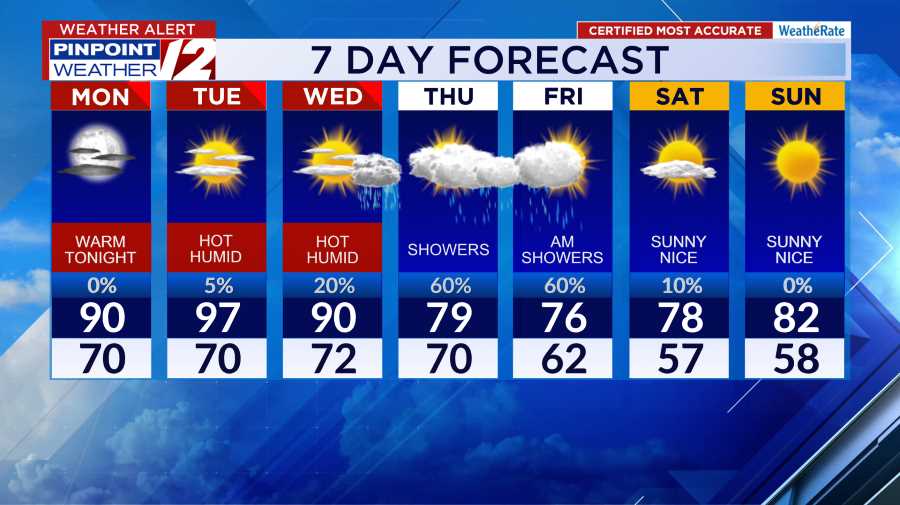PROVIDENCE, R.I. (WPRI) — Imagine this: you’re sitting at your computer and, with one click of the mouse, you generate an expertly composed 500-word essay.
Well you don’t have to imagine anymore, thanks to a program called “ChatGPT.”
While the technology is being celebrated by some students across the globe, it’s also worrying educators.
“It produces very realistic and conversationally accurate text,” University of Rhode Island business professor Stephen Atlas said. “Anything from generating a dialogue between people, to answering specific questions that somebody might ask, to providing an outline for a potential paper that could be written … to revising and editing that same document.”
ChatGPT is a form of artificial intelligence called a large language model. It was created by the company OpenAI and released to the public last fall.
The program has been fed an extremely large data set, effectively training it to predict which words are most likely to come next in a sentence.
The result: it can communicate in a way sometimes indistinguishable from human writing.
Atlas literally wrote the book on ChatGPT in higher education. His co-author was ChatGPT.
“It might be one of the best things that’s taking place right now,” he said of the new tech.
Atlas believes ChatGPT could become as common in academia as a calculator or spellcheck.
But he cautioned that students must use it responsibly in order to benefit from it.
12 News reached out to local colleges and universities regarding ChatGPT. While some are starting conversations regarding the new technology, many are relying on their overall academic standards to warn students that using ChatGPT to complete assignments and not disclose it is considered cheating.
Atlas tells 12 News disclosure is key.
“If we can learn about the types of disclosures that are necessary, so that we can write while also being honest and transparent about how exactly these ideas came to be, then we have the ability to work with this amazing new technology and to do so in a totally ethical way,” he explained.
Johnson & Wales is taking a different approach.
In a statement, spokesperson Rachel Nunes said the university will be hosting a series of faculty training sessions over the next couple of months “and are exploring ways to utilize this powerful new technology to facilitate student learning outcomes.”
When it comes to how ChatGPT will be used in the classroom, Atlas said it’s going to be up to individual schools and educators as to how it will be incorporated and detected.
12 News reached out to OpenAI regarding the technology, to which a spokesperson said the company offers guidance to both educators and students, as well as a tool that can detect AI-generated text.
There are other versions of detection software, too, including “GPTZero,” which was created by Princeton senior Edward Tian.
The software flags pieces of text likely generated by artificial intelligence programs like ChatGPT.
“[More than] 40,000 teachers have signed up for our product waiting list, from Rhode Island, New York, and all across the country,” Tian said.
Tian, like Atlas, believes students should be allowed to explore new technologies like ChatGPT.
“It’s the future,” he said. “AI is here to stay … but at the same time, it needs to be used responsibly.”
But Tian also admits that a world where everyone uses ChatGPT to write would be “kind of sad.”
“Imagine a world everyone is writing the same [rather than writing] originally,” he said. “Being able to write like yourself would be an even more valuable skill then.”
Tian said there is one simple way to tell whether a written piece was completed by a human or generated by a robot, something he describes as “burstiness.”
While humans have bursts of creativity, robots are very consistent, which he said can be a bit boring.



















